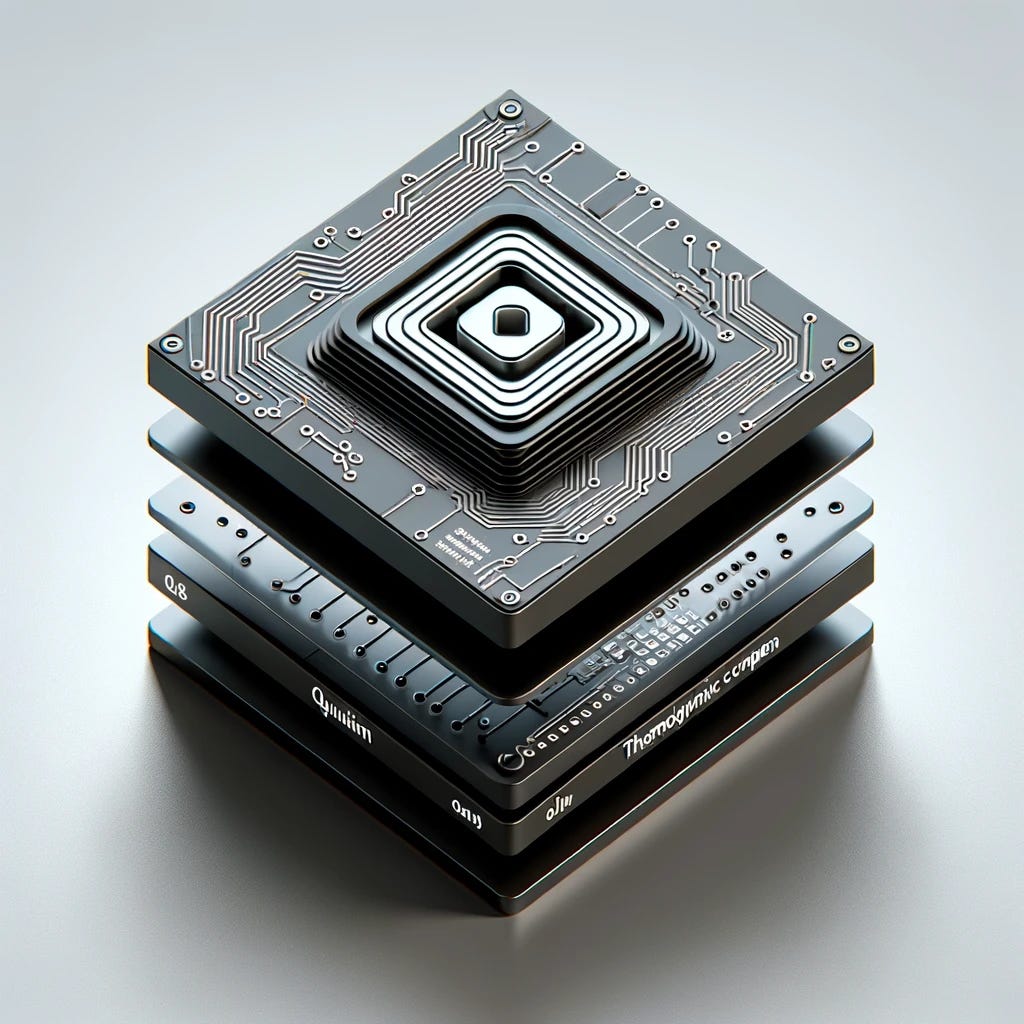Signal of Change: Innovations in AI Computing
The Emergence of Novel Computing Paradigms in the Wake of AI's Energy Demands
I have transformed this article from Wired, "ChatGPT's Hunger for Energy Could Trigger a GPU Revolution," into a strategic foresight signal of change. It highlights the escalating energy demands of sophisticated AI projects which are pushing the limits of traditional silicon-based GPUs and sparking a wave of innovation in computer chip technology.
Signals of change represent emerging trends, events, or new technologies that could indicate more significant upcoming shifts for organizations, society, or technology. This process is about preparing for and adapting to various futures, not predicting them. I used my Foresight Navigator GPT to convert this article into a signal of change. This GPT is available in the OpenAI store, but please feel free to send me articles to transform into signals of change like this one – it only takes a minute.
Signal Description: The burgeoning demand for artificial intelligence (AI) capabilities, exemplified by projects like ChatGPT, is pushing the boundaries of traditional computing hardware, notably graphics processing units (GPUs). This surge in demand is not only skyrocketing costs but also raising significant concerns about energy consumption. In response, startups like Normal Computing and Extropic are developing revolutionary approaches to chip design, moving beyond the conventional silicon-based architecture. These innovations include exploiting thermodynamic properties and the concept of reversible computing, offering potentially more energy-efficient and powerful solutions for AI's computational needs.
Signs:
OpenAI's disclosure of ChatGPT's $100 million training cost, highlighting the financial and energy intensity of large-scale AI models.
Normal Computing's development of a Stochastic Processing Unit (SPU) leveraging electrical oscillators for efficient statistical calculations.
Extropic's venture into thermodynamic computing for AI, integrating learnings from quantum computing.
Vaire Computing's exploration of reversible computing, aiming to perform calculations without information loss, addressing the issue of heat in chip manufacturing.
Growing investor interest in these startups, signaling a market readiness for alternatives to traditional GPUs.
Potential Implications:
Technological Advancements: The success of these new computing paradigms could lead to more energy-efficient, powerful, and cost-effective AI computing solutions. This would accelerate AI innovation, making it more accessible and sustainable.
Economic Shifts: A shift from GPUs to new chip technologies could disrupt the current market dominance of companies like Nvidia, opening opportunities for new players and potentially leading to a more diverse and competitive market.
Environmental Impact: Reduced energy consumption in AI computing would be a significant step towards more sustainable technology practices, aligning with global efforts to combat climate change.
Ethical Considerations: The ability to run larger and more complex AI models could raise concerns about the ethical implications of AI, including privacy, bias, and the impact on employment.
Geopolitical Dynamics: The development and control of these new technologies could become a focal point in global technological leadership, influencing geopolitical power dynamics.
These specific technologies include:
Stochastic Processing Unit (SPU):
Developed by: Normal Computing
Description: This technology leverages the thermodynamic properties of electrical oscillators to perform calculations. It utilizes random fluctuations within circuits, offering a novel approach to handle statistical calculations and linear algebra, which are crucial in machine learning.
Thermodynamic Computing:
Developed by: Extropic
Description: Extropic is working on integrating concepts from quantum computing into a full-stack thermodynamic chip. This approach aims to revolutionize neural computing by tightly integrating it with an analog thermodynamic framework.
Reversible Computing:
Developed by: Vaire Computing
Description: Based in the UK, Vaire Computing is exploring a fundamentally different approach to silicon chip design. Reversible computing involves performing calculations without destroying information, promising significantly improved efficiency and a solution to the issue of heat dissipation in chip manufacturing.
These technologies represent a significant departure from traditional silicon-based GPUs, indicating a transformative shift in the field of computing, particularly in addressing the demands of advanced AI applications.
For a deeper understanding of this transformative shift in computing paradigms, you can read the full article here.


